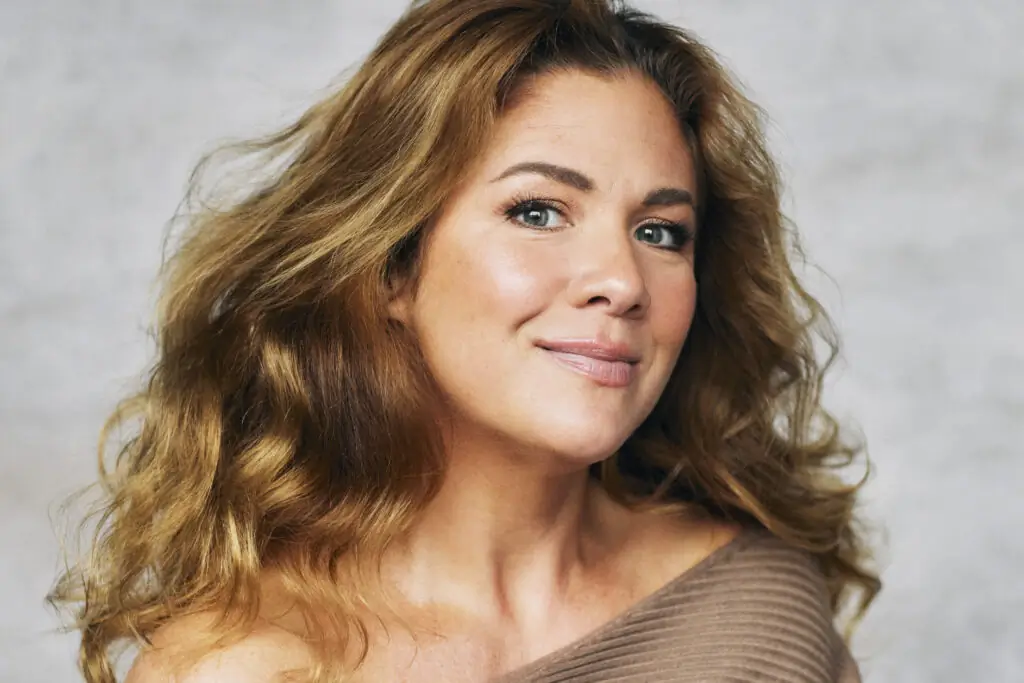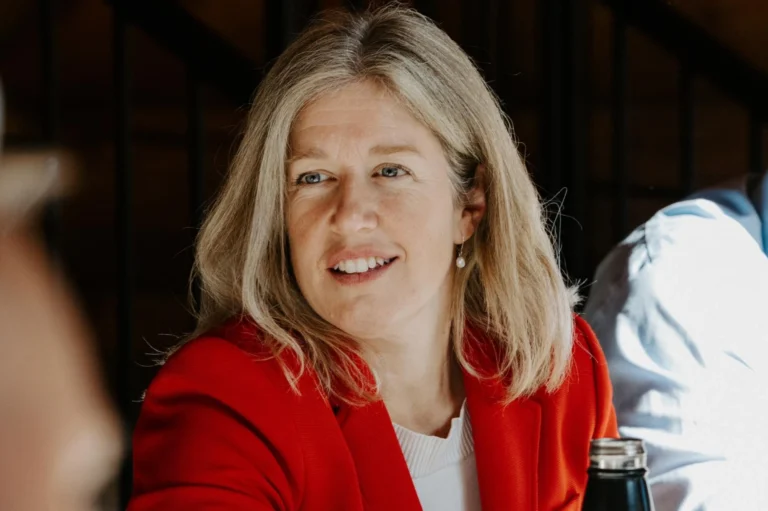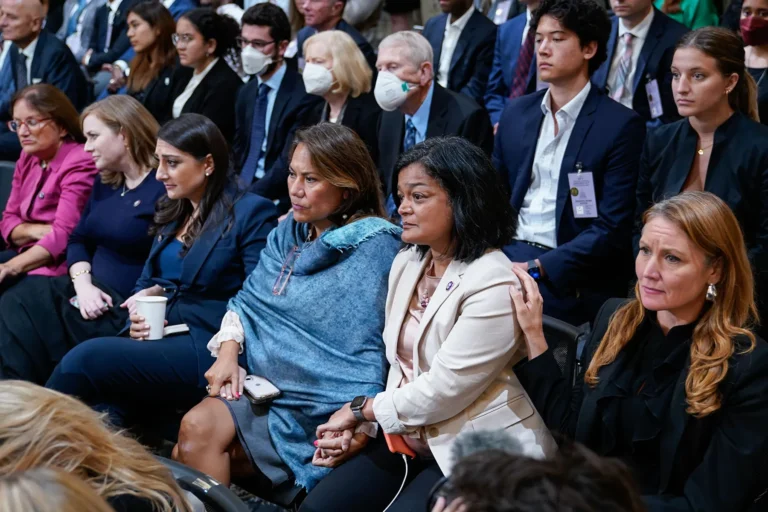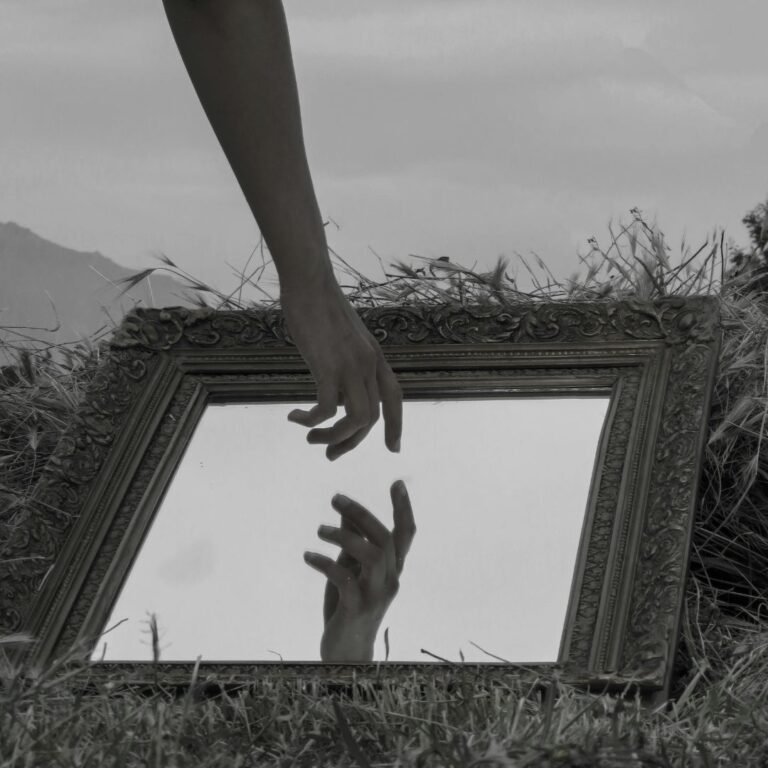Sophie Grégoire Trudeau — mental health advocate, author of Closer Together
Sophie Grégoire Trudeau has definitely got high name recognition, and she uses it for causes that make a difference for women too, which is something that a lot of women admire about her. She’s invested in equality, mental health, and youth empowerment. And now she’s entering a really fascinating period in her life, a period of both joy and healing. She’s about to release a much-anticipated book called Closer Together, and she’s recently separated from her husband, though they’re still actively co-parenting three children. That’s a lot to go through for any person.
Sophie Grégoire Trudeau joined us here at The Honest Talk to chat about her book, her feelings, the importance of mental health, and what we as women can do for ourselves to live full lives.

Catherine Clark: Jennifer and I have both read the book. We think it is really an exceptional book, and we’re curious about what you found out about yourself while you were writing it.
Sophie Grégoire Trudeau: I think first of all, writing is a cathartic process. It’s a way to feel emotions deeper. I wanted to bring my own experience — because I think you can only teach from experience, whether it’s when I teach yoga or meditation or anything about mental health — and it has to come from a place of integrity, of congruence, of truth.
I also wanted to share all the knowledge, all the experts, all the incredible people — I call them peacemakers, because they take science and they take humanity and then mix it together and they make us understand ourselves — and how we’re wired — better, to come into better connection with ourselves and with others.
When you look at the crises that this world is facing right now, if we don’t take our mental health and our capacity to better regulate ourselves very seriously, we’re not going to give ourselves all the tools we need to actually solve the problems and not just survive, but thrive. In mental health, emotional literacy is not just a cause, it’s a reality. It’s a universal common denominator that brings us all together.
The book was a labour of love. People say that when you work on a book, it’s like putting a little baby out in the world. I have three babies; it’s not exactly like that, but I understand what they mean.
Jennifer Stewart: In the book, you talk about a world that’s constantly trying to define us, to put us in boxes. How have you managed to resist being defined by others, especially given the fact that you live a public life? What advice do you have for women that don’t want to be defined through the perception of others as well?
Sophie Grégoire Trudeau: I have seen — as a mental health advocate and as a woman, as a friend, as an ally, as a mother — so many women suffer because self-betrayal is actually rewarded in our society. I see so many people trying to resist who they truly are and also not express their creativity.
We come into the world with two most-basic needs. Attachment — being cared for, being validated, and just loved. It’s survival; all babies need it and we need it. And then it’s authenticity — being able to express exactly who you are, without trying to please or change parts of yourself to be loved. We all try to please. We all want to be loved. We all want to be taken care of. We need it physically; we need it mentally.
When we live in constant self-betrayal, we cannot become our creative selves, which means we cannot express our authenticity, because we’re constantly changing ourselves, like the little child, and renouncing certain aspects of ourselves and our emotions to be loved, to fit in, to be validated. And it pisses me off.
It’s Gloria Steinem who says, “The truth will set you free, but first, it will piss you off.” Well, that constructive anger is important, because it means we’re facing our truths. And facing our truth hurts — it hurts to sit with your pain, it hurts to accept who we are, it hurts to not attach to life. Going countercurrent to who you are, a lot of energy is spent on fighting instead of creating. So there’s a neurobiological imperative, and a deep, deep, deep longing to be our authentic creative selves in order to face what we’re facing right now as a human species.
Jennifer Stewart: You must be very proud of your children because in the book, I remember you were talking to your daughter about humility and she said, ‘Mom, that’s how I live my life.’ And you asked your son about what love is, and he said, ‘It’s slow.’ So, you know, I think that’s just a testament to you and Justin, as parents.
Sophie Grégoire Trudeau: I’ll take that and I’ll place it into my heart, because sometimes you ask yourself, did I do it right? What have I done wrong? We live with doubt, but that’s okay. What I realized is it’s important to sit with the big emotions, to sit with sadness, to process sadness. Be very wary of individuals who have not had the space and the compassion and the care to actually process sadness, because that turns into very difficult emotions.
When you push it to the other end of the spectrum, when we talk about dehumanization and hate, for example — hate stems from a deep longing for connection. So, the more away we are from our own selves and the further we are from our authentic nature, the less chances we give ourselves to actually be authentic and be at peace with ourselves in the world.
So again, there’s no wealth without mental wealth — we cannot create wealth, and I mean it in every single sense that you can imagine, without being well-regulated and understanding how we are wired as human beings.
But we teach geography, we teach mathematics, we teach all kinds of topics to children — we need to open up that emotional library, and we need to open up this relational maturity that we all need better access to.
Catherine Clark: You talk a lot in the book about the fact that you have your emotions very close to the surface; you are quick to laugh, you’re quick to cry, you’re quick to sing. I’m curious as to why we still equate having emotions with being maybe unserious, or even at the worst end, unstable.
Generally, women are labeled as emotional. It’s seen as a bad thing, as opposed to someone who’s just in touch with their feelings and the feelings of those around them. And I just wonder how we get over that.
Sophie Grégoire Trudeau: Human beings are meant to feel, and we feel because we’re human beings. So to push that away — and we have brought up so many boys and men in different generations to repress their emotions, repress their anger, repress their sadness — is a big mistake.
Boys are emotionally more fragile than baby girls, when they come out into the world. Research has shown that, and I’m not surprised. And look what we’re doing to our boys — we’re insulting their intelligence and their potential because we’re telling them to repress their emotions, that a man should be tough.
I think that is a sign of how emotionally immature we are, to not accept the fact that emotions are a language. Intimacy is a language; emotions are a language; connection is a language. And the maturity that we could gain from being able to express what is repressed will allow us to progress more as individuals and as a society.
So I think for women, first of all, that’s b.s. It’s not because you’re emotional that you’re off the charts and that you’re not stable. The important aspect here is to be able to understand our emotions and to be able to regulate. This means understanding our wiring — and that’s what the book is about — and how to reset our nervous systems. We live so fast, we live with so much stress in our lives, and stress is simply a dysfunctional connection with the present.
Us women, we are the nucleus of the family, we hold everything on our plates, the emotional load of our family members. The emotional system is there to keep what is good — nourishing, emotions, validation, etc. It pushes away what is toxic — manipulation, gaslighting.
What does the immune system do? It needs to keep what is good for the body and needs to push out what is bad. Now there’s a new field being researched called psychoneuroimmunology. Because the way we handle our emotions and the way we are asked as women to hold a whole plate of everybody’s well-being while going to work, while performing, while doing all of it, sets our nervous system into alert mode. And that, in turn, affects our immunity. They’re really looking into it now and seeing that women who put their needs last and take care of everybody else in their lives are affecting their own immunity.
And look at the state of the world as well. How women are lacking sleep. We’re the first ones to suffer the emotional consequences of conflict and war. Our most basic rights are denied because we are women throughout the world.
We’re raised in a society of competition and comparison. And success is defined as recognition instead of actual connection and contribution. So as women, as we grow older, what I’ve seen is that we let go of the mask, a little bit, of competition, and we understand that having each other’s backs and hearts is paramount for our well-being, for our family’s well-being, for our society’s well-being, and for the world’s well-being.
And our boys should be part of that too, and they should be celebrated for their sensitivity and the depth of their emotions. So, the lesson here is, the deeper you’ll feel your emotions, the deeper you’ll sit with your pain, and the more mature relationally and emotionally you will become.
I don’t think I’m the most mature human being, but I do the work. I sit on my mat, or I sit with silence, I face my pain, I refuse to not look at the truth. Because I want to live my life in authenticity and in congruence inside of me. And when you do the work, it works.
Jennifer Stewart: What advice do you have for women that read your book and recognize that they need to slow down, that their life is frenetic, that they’ve got too many things on their plate, but they’re not sure how to do it?
Sophie Grégoire Trudeau: So, two things. The first one is insulting, because we’ve created a system where it has become a luxury to slow down. It’s so abnormal to slow down that nobody has time. So, I feel very privileged that I have chosen to slow down and that I can do it, because a lot of people can’t.
This being said, for all the women out there, we are on our phones all the time, we are holding the emotional load of the family, we’re trying to do it all. Take baby steps. When babies take their first steps, they get up, they fall down, they get up, they fall down. This is life. We are the same, in some ways. Start with five minutes a day — two minutes, if you feel intimidated by it. Sit in silence, find a guided meditation — there are easy, cheap, accessible apps out there that you can use.
Those micro movements create habits that turn into atomic habits that are there to stay. And when we repeat those habits, they can become traits.
It could be yoga, it could be qigong, it could be tai chi, it could be dancing in your kitchen, it could be sitting down in front of your favourite flower, it could be going around the block and taking five minutes to just stand and let all of your senses open and accept life as it is without wanting to change anything about yourself, about your life, or about anybody else on this planet.
With those micro moments, there is a new wire that’s fired in your brain. It’s a neurobiological imperative here. We’re not just feeling beings, we’re sensory beings. And those senses and sensations are really important, but we tune out of our own senses because we’re constantly stimulated, right? Always looking for the next distraction.
And in a society where lust and distractions are the drug of choice, whether we choose them or not, our brains sometimes have become lazy because we’re looking for outside stimulation to feel nourished. The hormones of relaxation are now felt like they are boring to teenagers because we’re constantly bombarded with the dopamine and the cortisol and the next high.
I was at a Forbes conference and there were women from across the planet and they were saying, ‘We feel depleted. We’re tired, we’re happy, we love our lives, but we feel depleted.’
It’s really in the tiny little moments in your everyday life that you can create sustainable change. It’s not by aiming for the sky — and I’m not saying that we shouldn’t — but it’s the tiny little habits that change everything. When I wake up, because there’s three kids in the house and I have to get ready and drive them to school, as I open my eyes, I think, ‘Okay, what do I do now for the kids?’
But that moment when you wake up and you don’t really know you’re awake, it’s beautiful, it’s like complete bliss — elongate that moment before you start your day, even if it’s just for 30 seconds or five minutes. So, I do a meditation, a guided one, for about five to eight minutes, and when I come down to the kitchen, I’m a totally new woman.
So, I would say, try micro steps, baby steps, and be patient with yourself. Don’t have that hook of you’re never good enough and you’re not doing it quick enough — it’s not about performance or control. We’re safe, it’s going to be okay — we need to hear that more often.
Catherine Clark: You’re someone who seems to truly be filled with a real sense of joy and a real sense of purpose. Like a lot of women are, you are going through a lot in your life, and you’re living yours in public. Are you happy right now?
Sophie Grégoire Trudeau: Yes, right now, at this moment, I am happy. I realize that we didn’t come here to be happy all the time. We’re here to become conscious. I am proud that I want to be conscious and to seek the truth.
Does it mean that I’m always happy? No, that wouldn’t be natural. Do I live with congruence in my heart and in my mind? Yes, I do, at a deep level. Does it come without pain? No. Do I cry it out? Yes. Do I have faith in life? Yes.
I’ve developed more faith in myself as well. I think I’m more at peace. I feel more free. Thank you, aging! Thank you, acceptance!
Thank you to all the people who have taught me, people who have given me love, and people who have also given me frustration, sadness, anger — we learn from them. The concept of a self-made woman, a self-made man, I don’t believe that at all. I believe that every encounter that you have changes you, and you decide what you want to do with it. But we are not the sole proprietor or creator of our success and our stories — we’re much more interconnected than we might think.
To answer your questions directly — yes, I’m happy. But what does happy mean, right?
Jennifer Stewart: I liked in your book that you said you’re teaching your children not to strive for the elusive word ‘happy’ or ‘successful.’ You’re teaching them to look into themselves. You make a really good point that you’re always chasing what society defines potentially as happy versus just peace with yourself. We loved your book — thank you for putting it out into the world and giving us a little piece of yourself. I love how you ended it with “I loved you first” — you’re giving a lot of love into the world and I think it will touch a lot of people.
Sophie Grégoire Trudeau: Thank you. And you made me think of something else — that hedonistic treadmill we’re all on, wanting more. It doesn’t always come from a bad place. We’re just trained that way. All I hope to do is to ignite the fire of creativity, and the courage in our fellow sisters and brothers, so that we can actually create the world we want, not let ourselves be created by the world.
Catherine Clark: That comes through in your book. It is a guidebook for people on how they can be introspective and to reflect on every stage of our lives, and how it’s helped us to become who we are. But also to your point, it doesn’t mean that you can stop doing the work. So it is very enjoyable and very informative.









